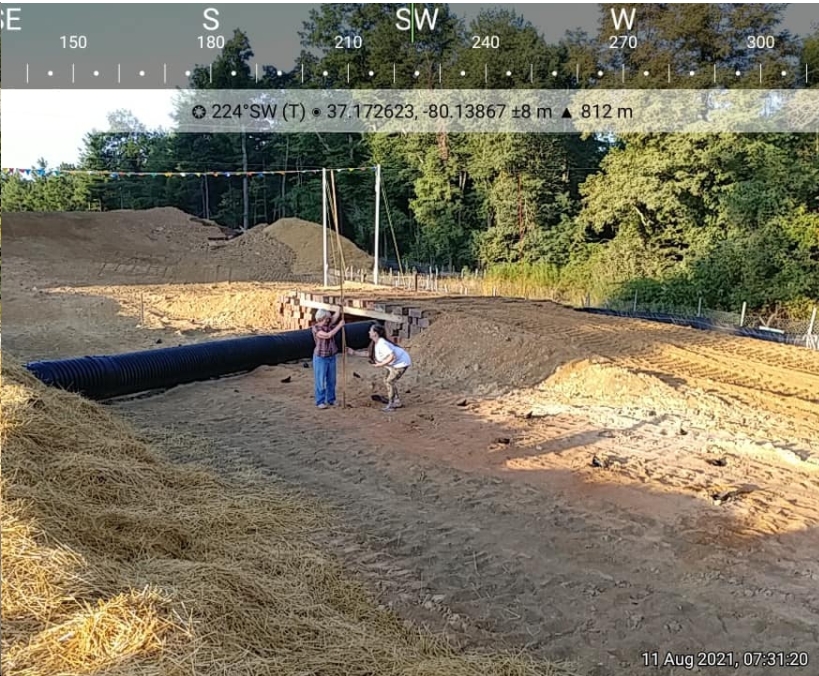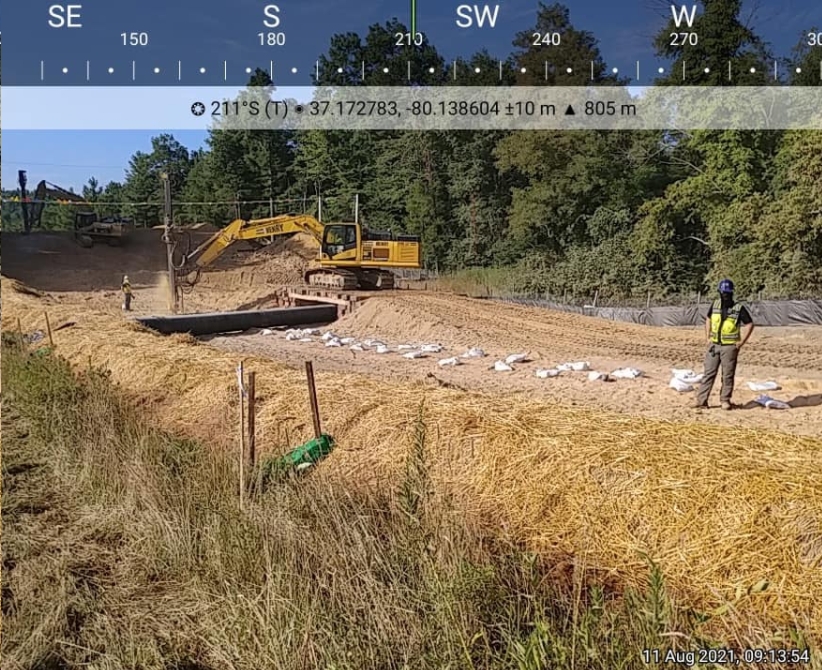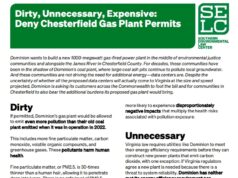 See below for an email that was sent to Virginia DEQ staff, state senators and EPA staff, by Freeda Cathcart, District Director representing Roanoke City on the regional Soil and Water Conservation Board. As Cathcart notes:
See below for an email that was sent to Virginia DEQ staff, state senators and EPA staff, by Freeda Cathcart, District Director representing Roanoke City on the regional Soil and Water Conservation Board. As Cathcart notes:
“[Mountain Valley Pipeline – MVP] is preparing to blast through an aquifer and probable wetland that contributes to the watershed for the Spring Hollow Reservoir. This appears to warrant a stop work order until a qualified hydrologist and soil scientist can assess whether or not there could be irrevocable harm to the Roanoke Valley’s drinking water supply. A possible monetary fine after the fact would be insufficient. We can’t drink money.”
With that intro, here’s her email to VA DEQ:
When I called the EPA hotline I was instructed to call DEQ. When I called DEQ, I spoke to John McCutcheon who said it’s expected that during construction that water is hit during drilling. Currently there’s an emergency stay that’s been issued by the federal court to protect water bodies so MVP doesn’t have a permit to disturb water bodies. There’s also a federal law protecting groundwater and aquifers.
Federal law protecting groundwater:
https://ehs.msu.edu/enviro/whpp/wh-05law.html
Definition of aquifer
According to the landowner, the drilled holes filling up with water are located between a known spring on their land and a stream, that’s usually a wetland but that area has recently been classified as being in a moderate drought. According to the landowners, FERC did not send out inspectors to identify this spring and wetland. This area is the headwaters to the Roanoke River and the watershed for Spring Hollow Reservoir which holds a large amount of drinking water for the Roanoke Valley.
Wednesday evening Karen Scott, a well qualified soil scientist, used an auger to dig a hole outside of the limits of disturbance next to where the drilled holes filled with water. The results were the land didn’t perk and there were different identifiable soils. However she would need to dig deeper to determine more information.
DEQ claims their inspectors went to the site. However witnesses didn’t see them measure the water in the holes or dig any holes. How can they determine there’s no need for concern when they haven’t done the work to assess the situation? The DEQ inspectors must do the work for us to accept that their claims of no need for concern have merit.
According to statute 62.1-44.15:37.1. the DEQ has the authority to protect our water: “the Department may issue a stop work instruction, without advance notice or hearing, requiring that all or part of such land-disturbing activities on the part of the site that caused the substantial adverse impacts to water quality or are likely to cause imminent and substantial adverse impacts to water quality be stopped until corrective measures specified in the stop work instruction have been completed and approved by the Department.“
MVP is preparing to blast through an aquifer and probable wetland that contributes to the watershed for the Spring Hollow Reservoir. This appears to warrant a stop work order until a qualified hydrologist and soil scientist can assess whether or not there could be irrevocable harm to the Roanoke Valley’s drinking water supply. A possible monetary fine after the fact would be insufficient. We can’t drink money.
If there’s another regulatory enforcement agency that should be contacted then please let me know immediately.
Sincerely,
Freeda Cathcart
District Director representing Roanoke City on the regional Soil and Water Conservation Board














